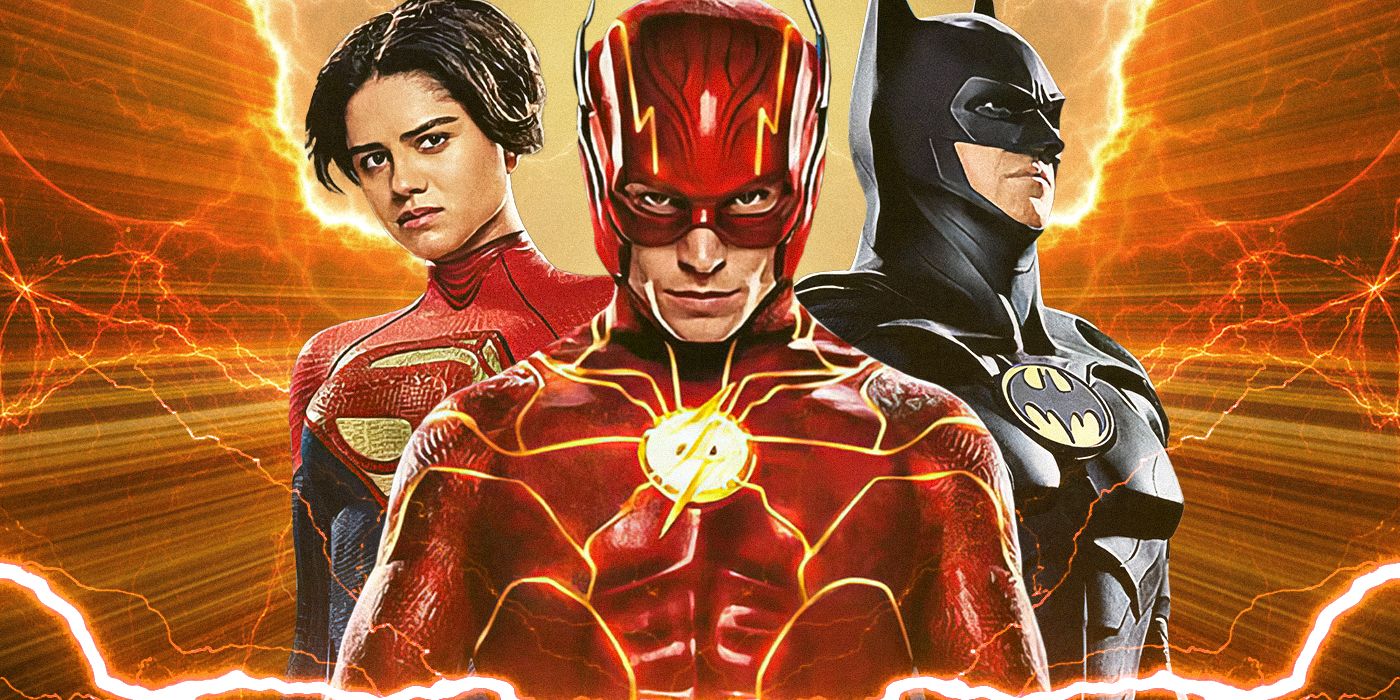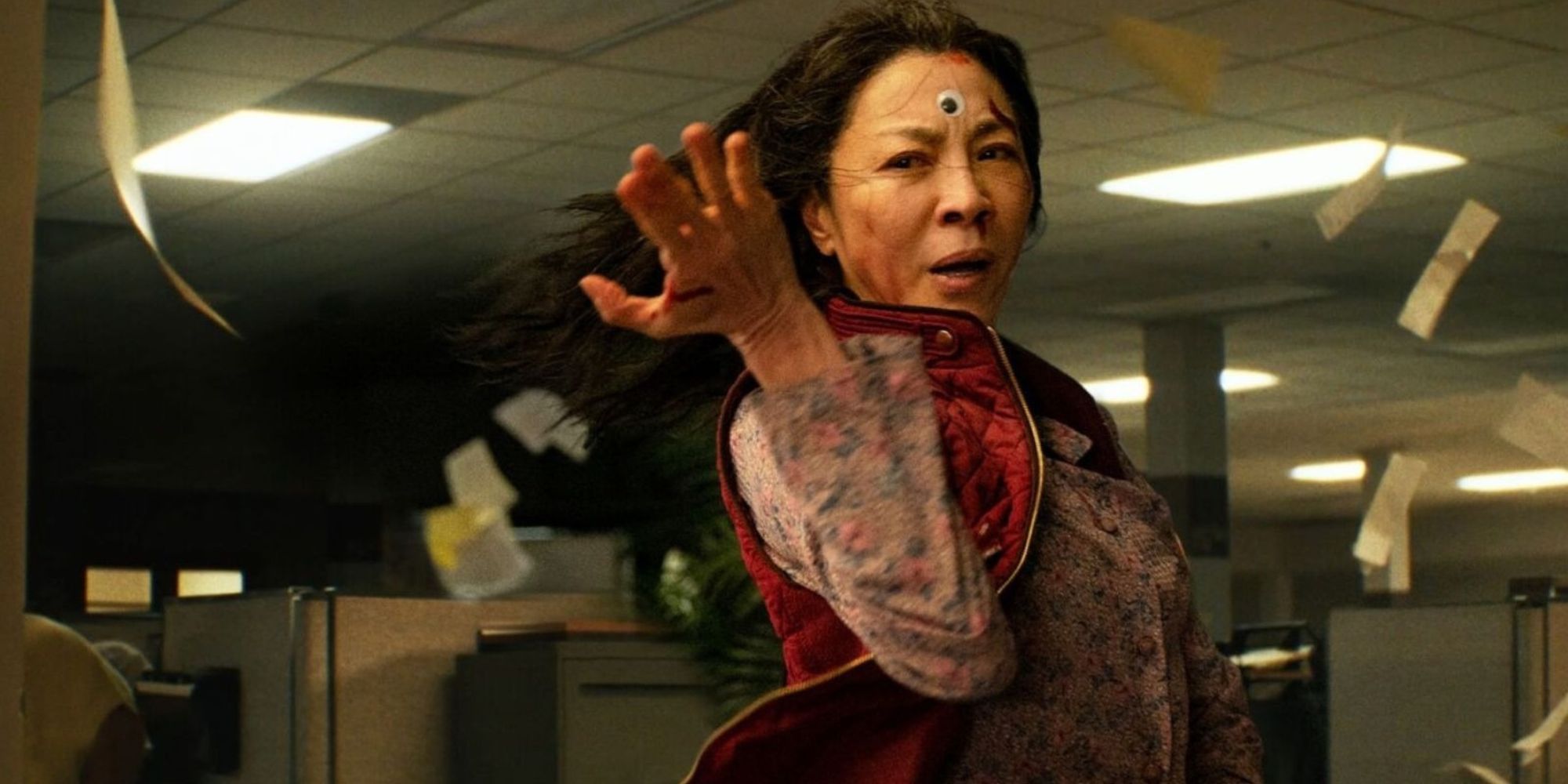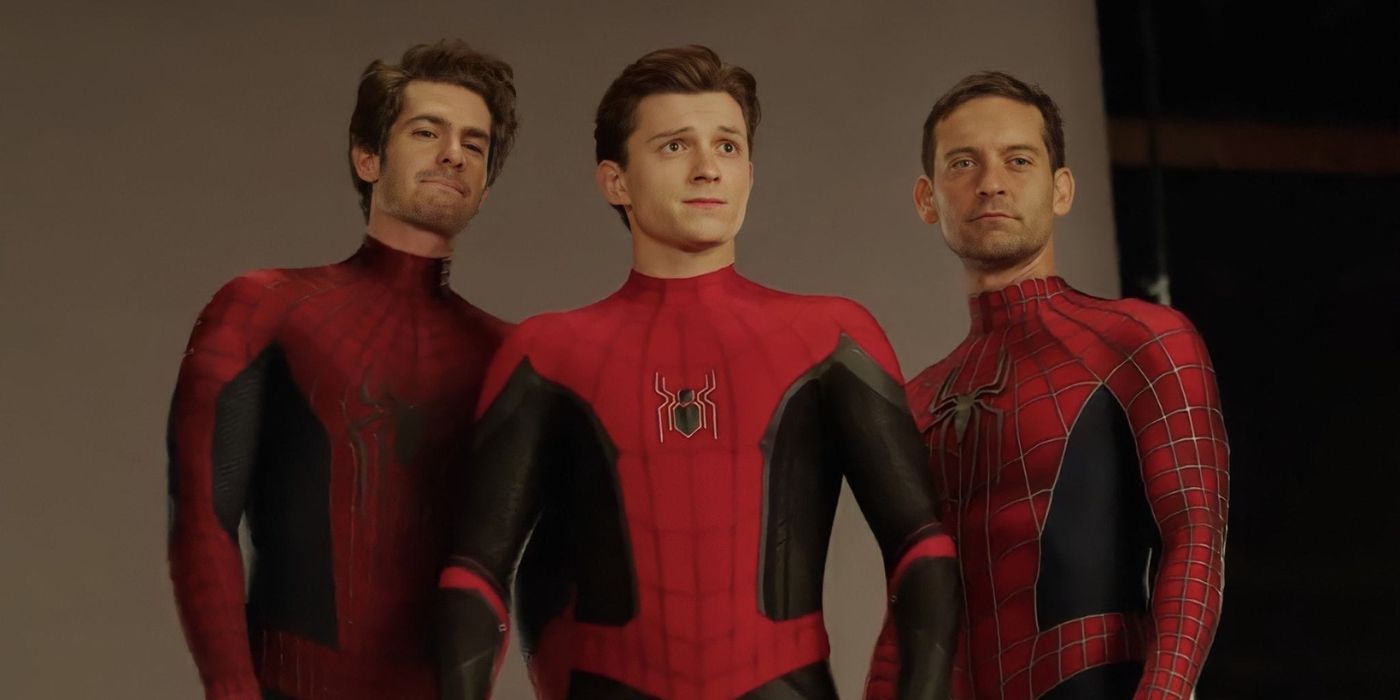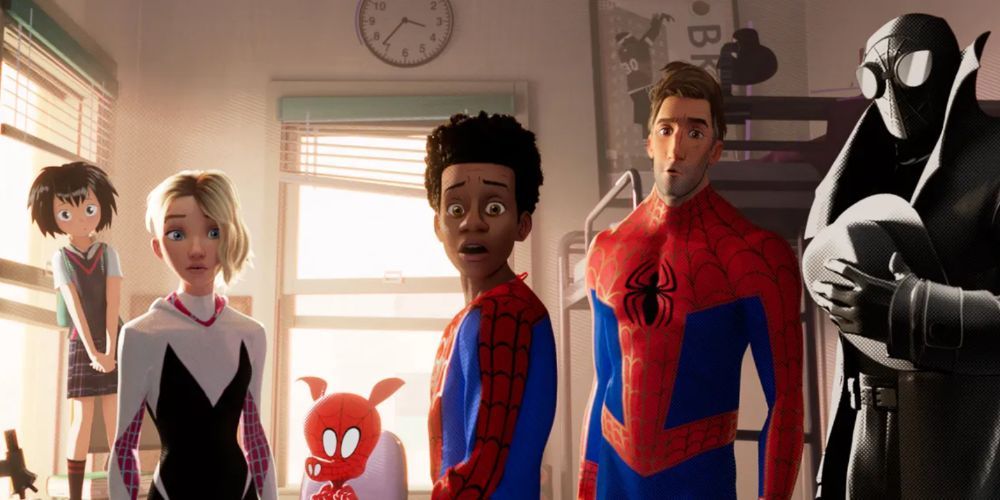Multiverses are all the rage these days, but let's be real, is there such a thing as having too many multiverses in movies? Like, have we kind of hit a wall? Considering this is a science that promises an infinite number of possible variants, it's interesting that the movies we've gotten kind of feature all the same tropes. Typically, the concept of multiple universes is introduced, our lead(s) learn the stakes that come with messing around with these other worlds, and of course, they dabble anyway. The rest of these films' runtimes are spent trying to patch things up and bring everything back to normal, and there you have it. That's what Hollywood is obsessed with these days. Of course, like any multiverse variant, these movies put their own little spin on the concept but never do enough to justify these movies being made. Has the multiverse craze run dry?
Why Are Multiverses Everywhere All at Once?
Multiverses have been portrayed in movies for longer than most might remember. The late '90s saw the release of Gwenyth Paltrow's Sliding Doors, the 2000s had The One and Star Trek, and even Jake Gyllenhaal got in on the action with 2011's Source Code. But it would be 2018's Spider-Man: Into the Spider-Verse that would really grab everybody's attention. Spider-Verse was a big, stylish, animated game-changer that managed to make multiverses easy to understand and endlessly fascinating for those who had never really heard of or thought about, this concept. It's a big-brain, comic book-y concept that feels like the kind of thing that would never spill over into the mainstream. After Spider-Verse, that was quickly proven false.
The tail end of the 2010s and especially the 2020s saw a galaxy-sized boom in multiverse storytelling. Just a few months after Spider-Verse, Avengers: Endgame took its titular characters into multiple new timelines in an attempt to take hold of the infinity stones and finally defeat Thanos (Josh Brolin). Marvel continued to push this storytelling device with recent films like Spider-Man: No Way Home and Doctor Strange in the Multiverse of Madness.
The current saga of films in the MCU is literally referred to as "The Multiverse Saga," mirroring the previous "Infinity Saga." A majority of their recent and future output is based entirely on this scientific concept. Not only have they been pulling in new and different versions of classic Marvel characters like Captain Carter (Hayley Atwell), but also bringing in previous incarnations from past film series' like Patrick Stewart's Professor X. Even DC has caught on to this approach of multiverse storytelling. Not only are we going to see the return of Ben Affleck's Batman in The Flash but also Michael Keaton as Bruce Wayne! Where's the focus on the plot with these movies, and how much of this is shock value?
'Everything Everywhere All At Once' Reinvented the Concept
Well, then there's Everything Everywhere All At Once. Sometimes a movie comes along, lights the world on fire with its game-changing ideas, concepts, special effects, story, and everyone on the planet jumps on board. If you thought there was hype for Spider-Verse, Everything Everywhere somehow managed to have multiplied that enthusiasm. Both the general population and Hollywood loved this movie so much that it managed to sweep the 95th Academy Awards, taking home almost every award that it was nominated for, including Best Picture.
Everything Everywhere is a bit of a different case than the recent superhero films that have explored multiverses. It's a small, independent production that had way less money and iconography to lean into, as opposed to something like a $200 million Flash movie with Michael Keaton's Batman. The Daniels had to craft a truly heartwarming family drama that would work on its own merit, with or without the high-concept sci-fi elements to back it up.
It's undeniable that they accomplished this, but Everything Everywhere is a bit of a case of "baby's first movie." This goes for other films like Inception or The Matrix, truly great movies with galaxy-brain ideas that are fascinating and revolutionizing the kinds of stories that can be told in movies. They're great, but they're also highly accessible pieces of entertainment and, because of their fresh and exciting sci-fi concepts, are going to receive a little more credit than they're due. Again, Everything Everywhere is still great, but should it have won Best Picture, or is Hollywood just excited over the new popularization of multiverses?
Are Multiverses Fun, Exhausting, or Both?
Everything Everywhere's massive success at this year's Oscars could have been a beautiful bow on the multiverse craze, but we're hardly out of the jungle yet. This June alone, we have both Spider-Man: Across the Spide-Verse and The Flash being released, two movies deeply indebted to this idea. That, plus we're still neck deep in this current MCU saga, let alone all of the other movies about variants and other dimensions that haven't been officially announced yet. Looking at just a fraction of the multiverse projects from the last few years becomes exhausting quickly! This has to be what it was like in the early 2000s after The Matrix introduced bullet time. Lucky for those audiences, with bullet time, you might have to sit for a few seconds of obnoxious slow motion. Multiverse storylines are way too big for a five-second reference. These stories have to take up entire films, and Hollywood's giving them to us by the boatload.
Everything Everywhere's Oscars success should not have been the green light for Hollywood to crank out more of these pictures, nor should No Way Home be a model for blockbusters to bring back actors who retired from their most iconic roles long ago. Studios will always want to garner as many accolades as they can. A cash cow is, understandably, a huge draw! But if we're to sit down and think about what we're doing here, once again, all we're doing is telling the same stories over and over again. For example, look at Doctor Strange warning Spider-Man about the consequences of playing with the multiverse in No Way Home, then look at Batman telling Flash about messing with time travel in the trailer for The Flash. What do Spider-Man and the Flash end up doing? They go ahead and dabble in the multiverse, realize they made a mistake, and have to fix things. These movies are way too similar.
Then there's the element that made live-action multiverse movies exciting at first before very quickly becoming a deeply cynical move at getting butts in seats. Remember how cool it was when Leonard Nimoy's Spock showed up in the first J.J. Abrams Star Trek, even though Zachary Quinto was already there playing the same character? It was nuts! Fast-forward twelve years to find Tobey Maguire and Andrew Garfield sharing the screen with Tom Holland in No Way Home. Sure, that's a messy movie with a plot that's built literally just to get those three actors on screen together, but when an idea is that fun, you'll take whatever means are necessary to get you there.
It Doesn't Seem Like Multiverses Are Going Anywhere
Michael Keaton's coming back as Batman? Though not a multiverse, Hugh Jackman will be returning as Wolverine in Deadpool 3, even though he already had the perfect send-off? Do these timelines also make your brain hurt? Remember before Multiverse of Madness came out and people only wanted to speculate about the variants that we might see in that movie? That Tom Cruise was going to appear as Iron Man or something? It turned out that that movie wasn't designed to be filled with pointless, empty-calorie cameos, and fans got upset.
How will we see studios reacting to the ways fans reacted to Multiverse of Madness's lack of cameos? When do movies stop being actual movies and instead become a means of releasing dopamine into the brains of nostalgia-hungry fans who just want to see something from their childhood on screen? Fun is fun, but how far do we want to veer from introducing anything new, and end up relying on our past to its detriment? Like the multiverse itself, the future of this predicament could go anywhere.
Spider-Man: Across the Spider-Verse's early reactions are nothing short of miraculous, so it seems as though the webhead's next big animated adventure is sure to thrill everyone, everywhere, all at once. However, there are apparently over 250 Spider-People in that film, so maybe we should just tread a little light on what we're doing here exactly. 250 Spider-People is a fun idea and all, but if we're going to do multiverse storytelling, let's maybe go more in the vein of thoughtful and character-driven like Everything Everywhere. Big sci-fi concept movies should be focused on the sci-fi concept at hand, as opposed to digging into a bin of action figures and finding your favorite version of Batman that you own. Like all trends in Hollywood, multiverse movies will see massive highs, and deep, deep lows, and eventually fade into yesterday's news. Moving forward, let's hope that this fad doesn't shake things up for the worse.





